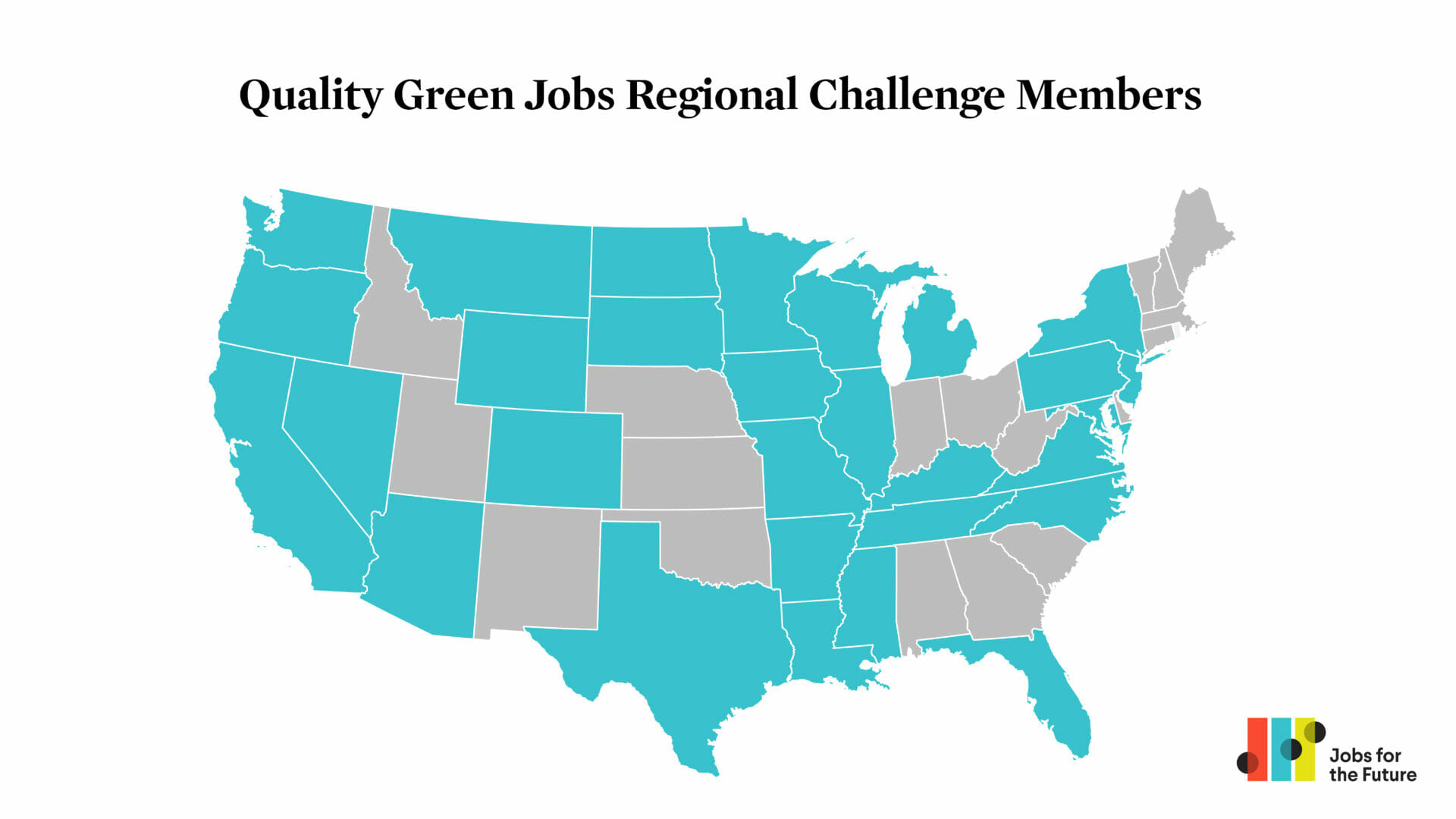The Quality Green Jobs Regional Challenge aims to invest in communities to develop and implement regional quality green job strategies to ultimately address climate risk and equity to build a green, resilient, and inclusive economy for all. The challenge is being coordinated by Jobs for the Future (JFF), and is part of an initiative by Climate-Resilient Employees for a Sustainable Tomorrow (CREST), a career preparation and re-skilling initiative of the Ares Charitable Foundation.
ASU’s College of Global Futures has been selected by Jobs for the Future to join as a Quality Green Jobs Regional Challenge Member alongside diverse group of 20 regions across the U.S to train and prepare individuals for climate-resilient jobs. As a member, ASU is receiving funding to develop our own regional green job initiative and forming a learning community to deepen our understanding of regional needs, risks, and opportunities at the intersection of climate change and workforce development.
In the coming months, the Executive and Professional Education team will be collaborating with partners across the southwest to develop regional strategies designed to address local climate challenges; climate policy; and social, economic, and cultural factors—essential steps in facilitating a clean energy transition that drives equitable economic advancement for all.
Read the full story on JFF’s website.

About Quality Green Jobs
JFF believes that all jobs, spanning all industries, have the potential to become green through the transformation of green skills to shape accessible and quality green jobs. Green skills are traditionally understood as the knowledge, competencies, and abilities necessary to engage in job tasks focused on climate mitigation efforts. JFF defines quality green jobs as jobs that provide a living wage and benefits, as well as stability, flexibility, autonomy, and equitable economic advancement, with particular attention to women of all backgrounds, people of color, and individuals with disabilities who remain consistently underrepresented in the green job economy. Learn more: www.jff.org/greenjobs
Key Goals of the Challenge
• Offer green job training and placement in quality jobs to 25,000 individuals in diverse regions across the United States and U.S. Territories
• Pilot strategies intended to disrupt occupational segregation in the green economy with a focus on racial, gender, and systemic inequities
• Help 100,000 people gain a deeper understanding of regional climate-related challenges and opportunities in the labor market
Interested in Collaborating?
ASU’s College of Global Futures is bringing together a diverse group of partners and collaborators in order to achieve this large undertaking. Do you know an organization that can contribute? Reach out to [email protected].